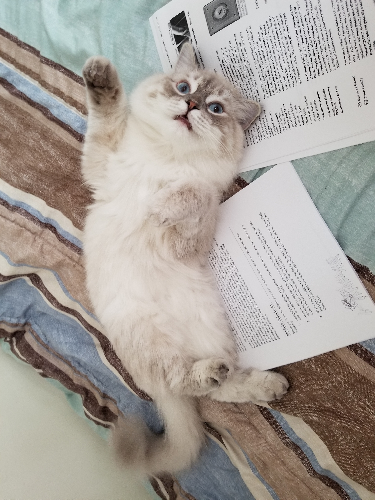June 2000 LSAT - Section 2 - Question 21
Bank deposits are credited on the date of the transaction only when they are made before 3 P.M. Alicia knows that the...

Reply

Victoria September 14, 2020
Hi @maonuo,Happy to help!
Let's start by going through the stimulus. The stimulus concludes that Alicia knows that the bank deposit was credited on the date of the transaction.
Why? Bank deposits are credited on the date of transaction only when they are made before 3:00 pm and Alicia knows that the bank deposit was made before 3:00 pm. Notice the use of "only when" (i.e. S&N terminology).
Credited on date of transaction --> Made before 3:00 pm
Not made before 3:00 pm --> Not credited on date of transaction
The flaw made in the stimulus is that it uses the necessary condition to conclude the sufficient condition (it improperly reverses the S&N diagram).
P: Credited on date of transaction --> Made before 3:00 pm
P: Made before 3:00 pm
C: Credited on date of transaction
However, the question stem asks us to find the answer choice which exhibits both of the flaws made in the argument. So, what is the second flaw?
This is a bit trickier. The second flaw is made in concluding that Alicia knows that the bank deposit was credited on the date of transaction. We can't conclude that Alicia knows this based solely on the information that she knows that the bank deposit was made before 3:00 pm. It is entirely possible that Alicia does not know the bank's rules. Or maybe she believes that bank deposits are always credited the day after the transaction.
The point is, we cannot conclude that Alicia knows X based solely on the information that she knows Y.
So, our two flaws are: (1) improper reversal; and (2) concluding Alicia knows X because she knows Y.
We are looking for the answer choice which exhibits both of these logical flaws.
Answer choice (A) is incorrect because it only commits one of the flaws. Remember that "the only" introduces a sufficient condition.
P: Permitted to ask questions --> Journalist
P: Journalist
C: Permitted to ask questions
The flaw here is an improper reversal i.e. concluding that Marjorie will be permitted to ask questions because she is a journalist. However, it does not commit the second flaw.
Answer choice (B) is incorrect for the same reason as answer choice (A). It commits only the first flaw.
P: Patrice works --> Thursday
P: Thursday
C: Patrice works
This answer choice does not comment on what Patrice knows.
Answer choice (D) is incorrect because it does not use conditional reasoning. Therefore, it cannot make the flaw of confusing a necessary condition for a sufficient condition (i.e. an improper reversal).
Answer choice (E) is incorrect because it does not commit the conditional flaw. The flaw here is that the answer choice jumps from wanting something (wanting to be a social worker) to wanting an implication of that thing (wanting to be poorly paid).
Answer choice (C) is correct because it commits both of the flaws committed by the stimulus.
P: Promoted to shift supervisor --> Helen resigns
P: Helen will resign
C: George will be promoted to shift supervisor
This is the improper reversal. Notice that this answer choice also commits the error of concluding that George knows that he will be promoted to shift supervisor because he knows that Helen will resign i.e. concluding that George knows X because he knows Y.
Hope this helps! Please let us know if you have any further questions.